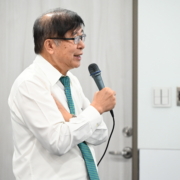【Post-event Report】20230822 #METOO Lecture Series (First Half)
Speech by President Wu Max
The topic of this symposium is essential in today’s diverse society. Whether it’s in the workplace or in every corner of society, it is a very important issue. I wish everyone in today’s symposium can express their opinions enthusiastically. In the future, whether it’s in the workplace or in the aspect of equal treatment in our diverse society, there will be more and more discussions and progress.
Director Chen Yihua
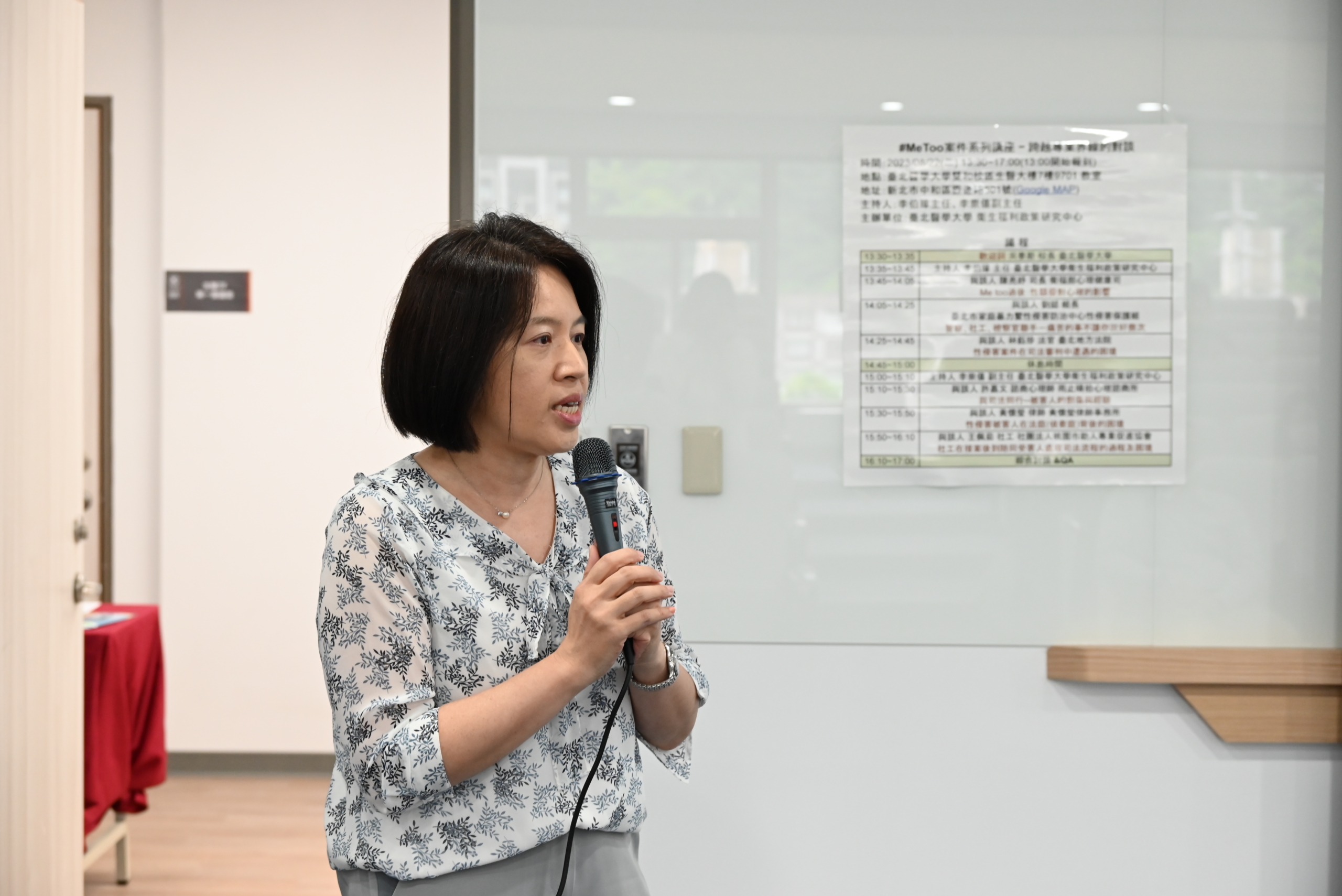
I am honored to participate in this professional and multi-disciplinary symposium today. In fact, there have always been voices like this in the past, and this time, through such a social issue, we have a well-organized topic that allows everyone to have more thoughts and express them on this issue. Although the Gender Equality Education Act was passed in the Legislative Yuan at the end of July, and gender equality laws in the academic field and related reporting channels have been gradually established, this issue is not solely about legal fairness. It involves the transformation of cultural atmosphere, the entire physical and mental aspects, and societal change. The lack of financial resources in addressing this issue, whether in preventing sexual assault or addressing gender issues, is a well-known reality. Victims not only suffer during the process but also face self-doubt afterward and questioning within the judicial process. It’s a comprehensive problem.
Therefore, I think today is indeed very special, and I am delighted that we have this discussion, focusing on important issues within this topic. As the Chairperson, I am also a member of the University’s Sexual Harassment Review Committee. I have observed a significant increase in the number of cases recently. This is not a bad thing; it means more people are willing to step forward to face and discuss these issues. I am very grateful to the Center for Health and Welfare Policy for organizing a series of forums at such an important time, focusing on issues that everyone cares about deeply.
Director Lee Bo-chang’s Welcome Address
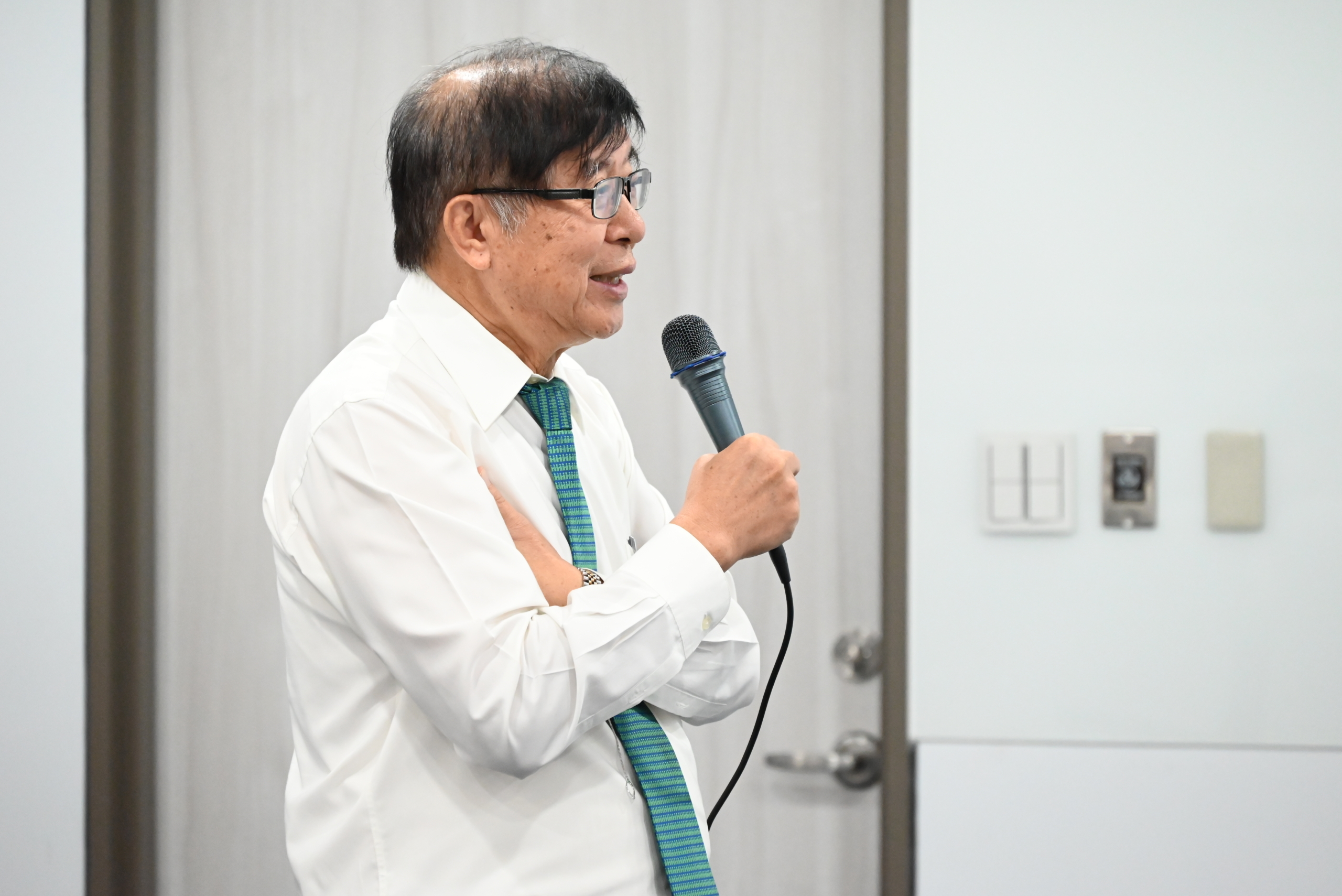
This topic is quite complex, not just a legal issue. Participants include experts from various fields such as counseling psychologists, lawyers, judges, social workers, and more. They will share their perspectives in the presentations. This topic raises questions about why situations have evolved as they have. There are many related issues to be addressed in society and in the legislature. In Taiwanese society, some individuals have a deep understanding of this topic. The speakers participating in this discussion are all colleagues in this field, and they were invited because of their relevant expertise. This discussion is conducted in an open environment, and although seating is limited, we hope to gather comprehensive information. The media is also present, and we hope to disseminate information through various channels to reach a wider audience.
All the speakers and experts have been invited to participate in the discussion, and we hope they can freely express their opinions without hesitation. Among them, counseling psychologists play a significant role in this issue, helping individuals find solutions in their personal situations, which is crucial within the healthcare system. Integrating counseling psychology services into the National Health Insurance system is still a goal to be achieved, and it is considered an important objective.
Liu Yi, Group Leader
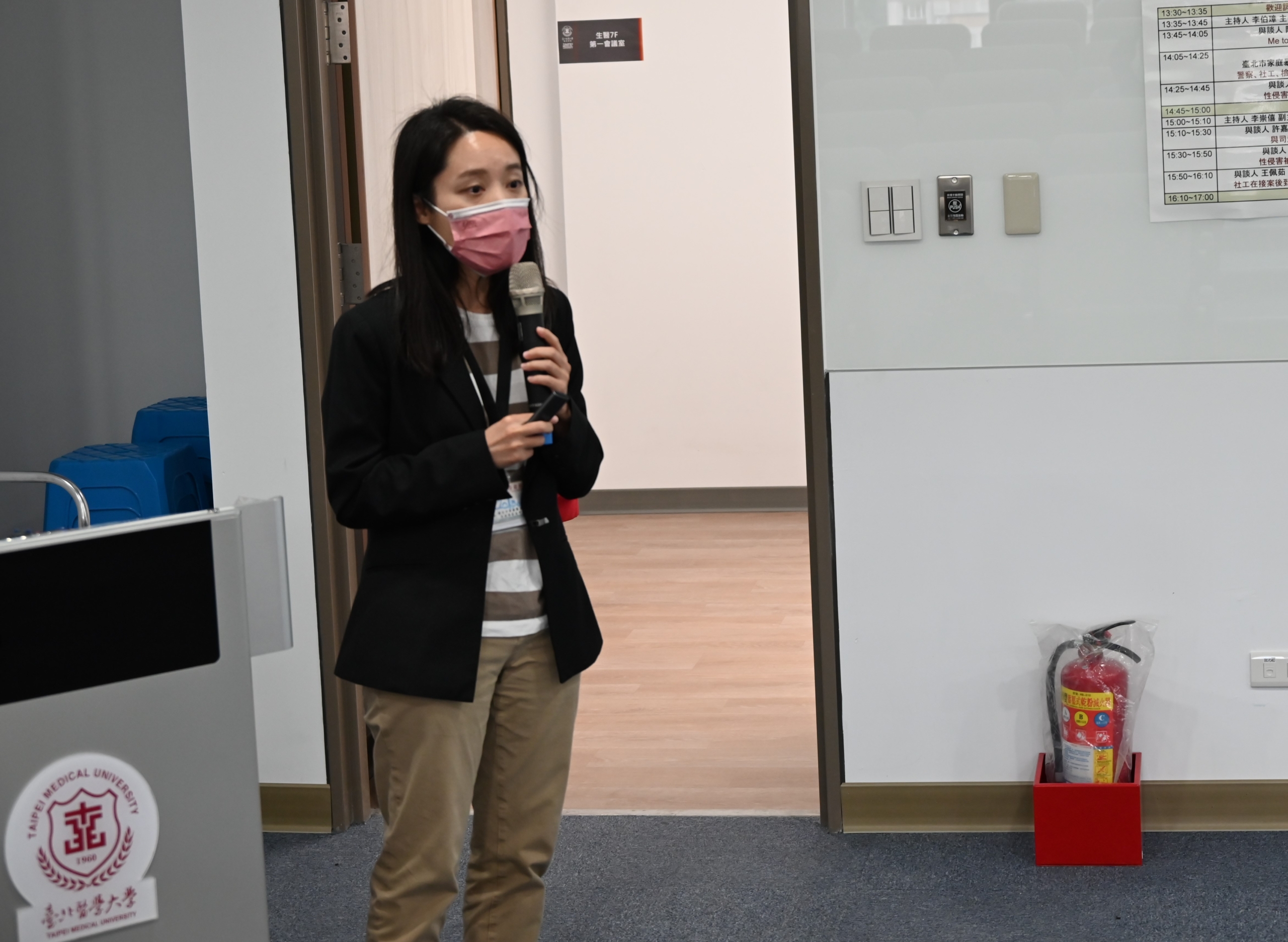
The primary goal of the “進減” (Simplified Procedures for Entering) program is to reduce the burden on victims of having to repeatedly explain their situation during the legal process. It aims to increase the willingness of victims to seek help and ensure they receive appropriate support and protection. The program is led by the Taipei City Domestic Violence and Sexual Assault Prevention Center and expanded its services to adult victims of sexual orientation following the passage of the Digital Anti-Sexual Harassment Act, one of the four key anti-sexual harassment laws in Taiwan.
The core idea of the program is to establish cross-agency cooperation, connecting professionals such as police officers, social workers, and prosecutors to ensure that victims do not need to repeatedly recount their experiences but can receive all the necessary information and support in one go. The program includes the creation of easy-to-understand graphic introductions, outlining potential processes and resources for victims in the legal system. It also provides materials to victims to help them better understand their rights and protective measures.
Moreover, cross-agency collaboration helps in responding swiftly to the needs of victims, providing consistent information, and ensuring that victims receive appropriate support during legal proceedings. The program faced challenges in collaboration among professionals from different backgrounds and values, such as police officers, social workers, and prosecutors. However, by establishing common tools and norms, cross-agency cooperation has successfully reduced the suffering of victims during legal processes and increased participation rates.
The success of the program lies in harnessing the strengths of various professions to provide victims with a more friendly, proactive, and equitable legal support. This program has not only been implemented in Taipei City but has also garnered the attention of the Ministry of Health and Welfare, becoming a practical experience that can serve as a reference and guidance for other regions. The ultimate goal is to ensure that victims receive appropriate support during the legal process, reduce the trauma caused by repeated recounting, and enhance the efficiency of the overall judicial system.
Director Chen Liang-yu

The issue of sexual harassment covers a wide range of topics, including the obstacles that victims may face when seeking resources and issues related to mental health and resource utilization.
Statistics on sexual harassment incidents, as published by the Ministry of Health and Welfare, show a year-on-year increase in the number of reported sexual harassment incidents.
The impact of sexual harassment on mental health was discussed by Director Chen, who pointed out that sexual harassment can have psychological consequences. However, there has been relatively less discussion of this issue during the legislative process.
Treatment and care frameworks for the symptoms of sexual trauma were explored by Director Chen, emphasizing the need to establish appropriate care frameworks. This section particularly highlighted that these care frameworks should encompass various forms of support and resources, not limited to medical and psychological aspects alone.
Relevant measures and mental health resources were mentioned, including some of the measures implemented by the government to address sexual harassment issues, along with a list of mental health resources available to the general public.
Director Chen also analyzed trends in sexual harassment cases:
Trends in sexual harassment incidents, with the number of reported sexual harassment incidents increasing year by year. This may reflect an increasing awareness of and willingness to seek help for sexual harassment issues.
Different types of sexual harassment were mentioned, with cases related to physical contact showing a decreasing trend. However, harassment on social media and the sharing of explicit content showed an increasing trend.
The implementation of counseling programs for young people was explained. This was in response to a rapid increase in the suicide rate and suicide attempts among young people aged 15 to 30, necessitating more support and resources to address this issue. Young people seeking counseling may face various barriers, including economic and attitudinal barriers. The Ministry aimed to eliminate economic barriers by providing free counseling programs and also stressed the importance of improving the culture of seeking help. The report mentioned that the counseling programs that have already been implemented have received a positive response, with some psychologists and doctors noting active participation by young people. Furthermore, Director Chen mentioned other trauma recovery programs aimed at providing more support and resources to traumatized individuals. It was emphasized that with the passage and implementation of the law, the demand for this support will increase, and the public is encouraged to promote these resources. Director Chen concluded the speech by expressing determination and commitment to addressing structural barriers.
Judge Wang Yu-chen
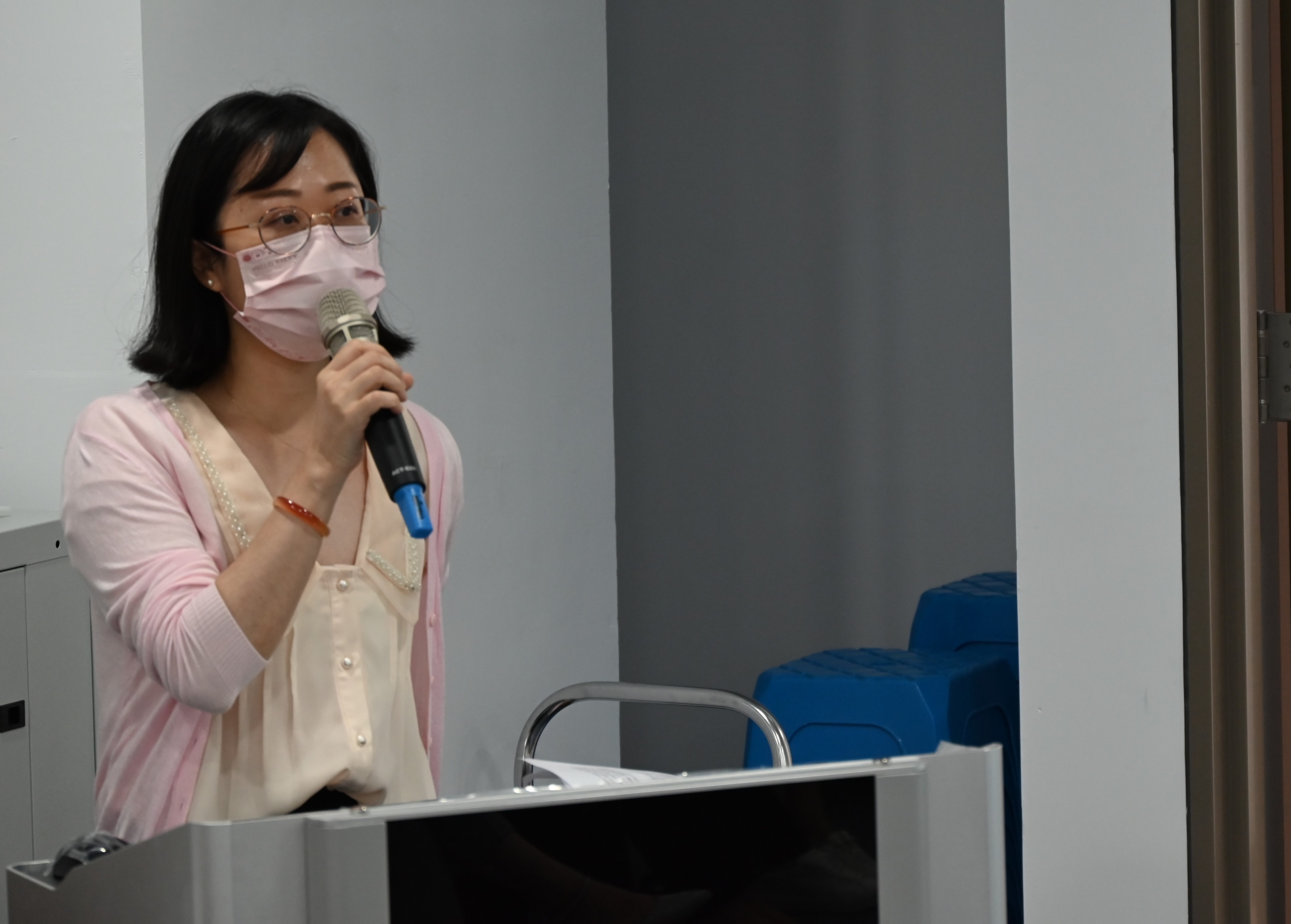
Judge Wang discussed various challenges that may arise when handling sexual assault cases in court, particularly concerning the victim’s statements and evidence:
- Hostile Attitudes of Victims and Professionals: In court proceedings, questioning the victim and introducing testimony from professionals such as social workers or teachers can sometimes lead to hostile attitudes from the victim or professionals. This may be because they suspect the judge’s questions, feel that the judge does not believe the victim, or have doubts about the consistency of the victim’s statements.
- Special Nature of Sexual Assault Cases: Sexual assault cases involve vulnerable groups such as women, children, and individuals with disabilities. These victims may feel fear after experiencing sexual assault and may worry that disclosing the incident will lead to family breakdown and a loss of trust.
- Impact of Psychological Disorders: Victims may face psychological disorders, which can reduce their willingness to make statements. These psychological disorders may be due to the traumatic nature of the incident, making victims unwilling or unable to disclose immediately.
- Limitations of Evidence: Sexual assault cases often have relatively limited types of evidence, which can differ from other cases in certain aspects. This may lead to victims needing more time to prepare psychologically, potentially resulting in the loss of evidence.
- Defenses and Myths: Judge Wang discussed some defenses that defendants may raise, including the victim’s appearance, behavior, consent, marital relationship, and more. He pointed out that these defenses may stem from misunderstandings about sexual assault cases and a lack of understanding of the reasons behind the victim’s statements.
Judge Wang emphasized the importance of understanding the psychological, evidential, and emotional challenges involved in handling sexual assault cases. This understanding is crucial for supporting victims and better managing these sensitive cases.

